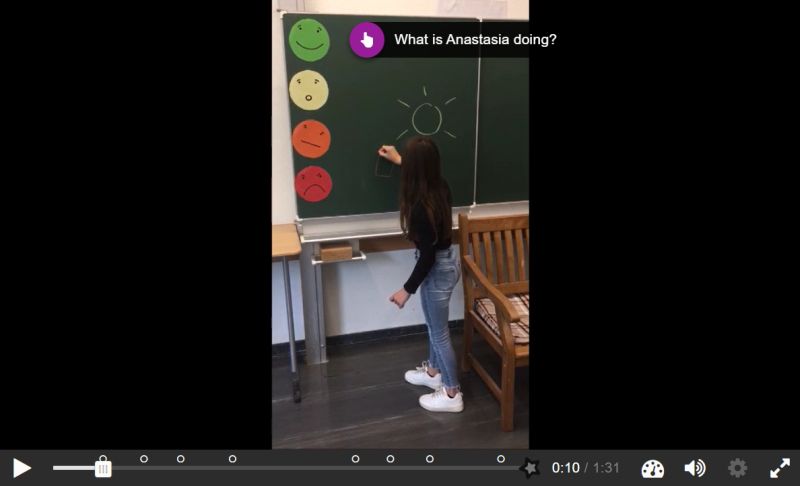What I do every week
| Website: | Herzlich willkommen auf der Seite der QUA-LiS NRW |
| Kurs: | At home_alt |
| Buch: | What I do every week |
| Gedruckt von: | Gast |
| Datum: | Donnerstag, 29. Januar 2026 |
Beschreibung
1. Vocabulary - What I do every week
| Picture | English | German | In context | Notes |
|---|---|---|---|---|
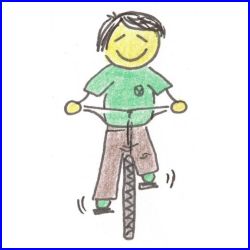 |
to ride a bike |
Fahrrad fahren | Akira likes to ride his bike. | Write something that helps you to learn. |
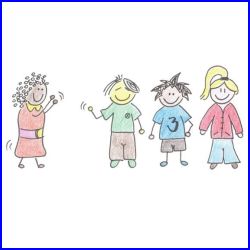 |
to meet friends |
Freunde treffen | Joyce meets her friends in a park on Sundays. | |
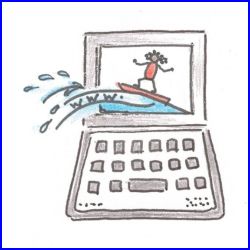 |
to surf the internet |
im Internet surfen | Children love to surf the internet. | |
 |
to go shopping |
einkaufen gehen | Akira goes shopping in a supermarket every Friday. | |
 |
to cook |
kochen | Noah cooks for his mother every Sunday. | |
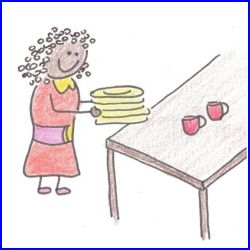 |
to lay the table |
den Tisch decken | Every evening Joyce lays the table at home. | |
 |
to eat |
essen | Akira loves to eat. | |
 |
to drink |
trinken | Joyce and Nina often drink fruit juice. | |
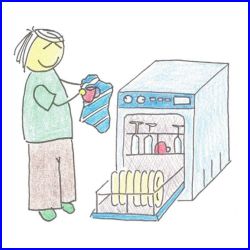 |
to empty the dishwasher |
die Geschirrschpülmaschine ausräumen | After school Akira always empties the dishwasher. | |
 |
to help grandma |
Oma helfen | Nina often helps her grandma. | |
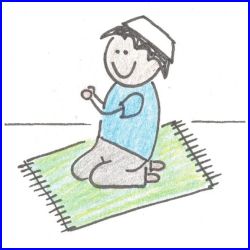 |
to pray |
beten | Noah prays every day. | |
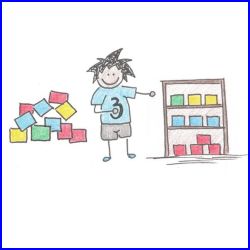 |
to tidy up my room |
mein Zimmer aufräumen | He tidies up his room after school. | |
 |
to do my homework |
meine Hausaufgaben machen | Nina does her homework every day. | |
 |
to go to church |
in die Kirche gehen | Every Sunday we go to church. | |
 |
to sleep |
schlafen | She sleeps at eight o'clock. |
1.1. Dialogue Cards - What I do every week
1.2. Flashcards - What I do every week
1.3. Find pairs 1
learningapps.org: Cookies
1.4. Find pairs 2
learningapps.org: Cookies
1.5. Memory
Find the correct pairs. Finde die passenden Paare.
learningapps.org: Cookies
1.6. Dictation 1 - Words
1.7. Dictation 2: Sentences
1.8. Paraphrasing (optional)
Erkläre drei Wörter aus dieser Lektion für das "dictionary".
Führe folgende Schritte aus:
Schritt 1: Lies zwei oder drei Einträge im "dictionary" als Beispiel.
Schritt 2: Finde Worte, die zum Thema gehören, aber noch nicht im "dictionary" stehen.
Schritt 3: Erstelle einen neuen Eintrag für die Kategorie "At home".
Schritt 4: Schreibe das englische Wort und die deutsche Übersetzung in den Titel.
Schritt 5: Erkläre das Wort im "dictionary".
Schritt 6: Schreibe einen Beispielsatz mit dem Wort.
Extra-Schritt (kreativ): Wenn du möchtest, kannst du ein Bild ergänzen. Du kannst etwas zeichnen oder ein Foto machen.
3. Creative task
Record a short videoclip about a regular activity. Show your result to your classmates.
Drehe ein kurzes Video zu regelmäßigen Aktivitäten. Zeige es deinen Mitschülerinnen und Mitschülern.
4. Grammar - repetition present progressive
Do you remember the present progressive? You need a form of "to be" and the verb+ing.
Do the following tasks to repeat it.
Erinnerst du dich an das Present Progressive? Du benötigst eine Form von "to be" und das Verb+ing.
Bearbeite die folgenden Übungen, um es zu wiederholen.
4.1. Saturday afternoon - Fill in the correct form of the verb
Akira is alone at home. Now he is writing an e-mail to his friend Joyce. Fill in present progressive form of the verb.
Akira ist alleine zuhause. Jetzt schreibt er eine E-Mail an seine Freundin Joyce. Setze die Verben im Present Progressive in die Lücken ein.
learningapps.org: Cookies
4.2. Sunday afternoon at home
It is Sunday. What are the people doing at the moment?
Es ist Sonntag. Was machen die Leute gerade?
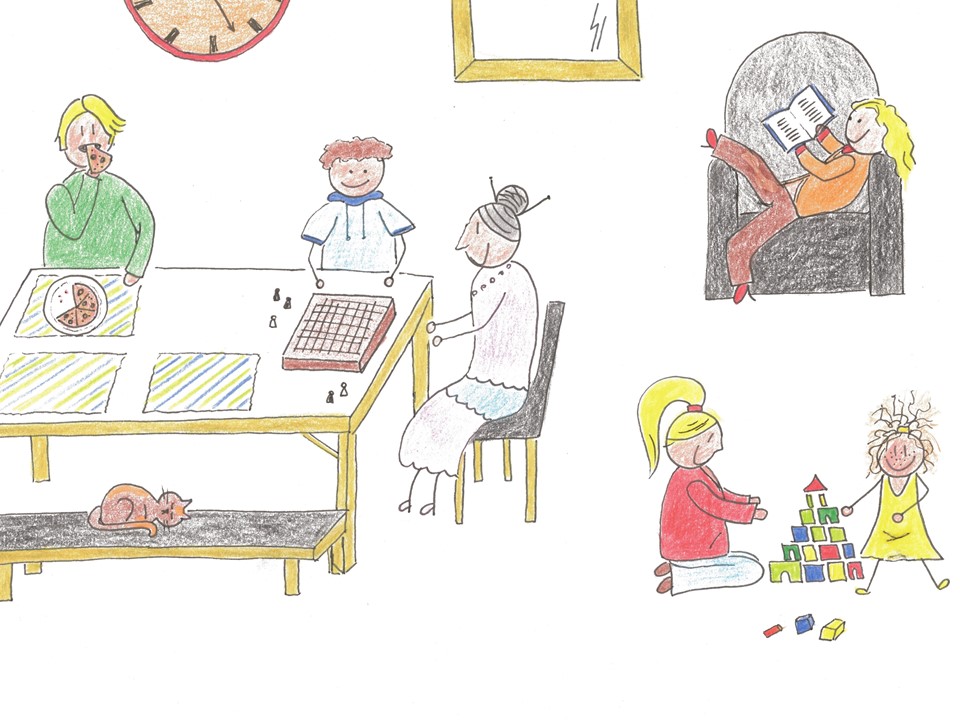
learningapps.org: Cookies
5. Reading "Homework"
Listen and read the text
Here you can listen to the text:
Slow version:
---
Homework
Noah is tidying up his room. It isn’t very tidy. "Where are you, Mum? Please come and help me!" His mum is working in the kitchen. "Sorry, I am making dinner. Ask one of your siblings."
Noah’s dog Rocky walks into his bedroom. Rocky is dirty. He jumps onto Noah’s bed and pushes Noah’s school bag off the bed. The school bag falls onto the floor. "Rocky! Don’t do that! I’m tidying up my room. Go downstairs, now! Go to your basket in the kitchen." Rocky doesn’t want to go, so Noah takes him downstairs.
Downstairs, Rocky walks to his basket in the kitchen und Noah goes into the living room. There, his sister Aylin is watching TV, she is watching a film. Noah looks at her. "Is the film good, Aylin?" – "No, it’s boring" – "Then come and help me tidy up my room, please!"
Aylin now looks at Noah. "Sorry, Noah. I can’t help you, I’m doing my homework." – "But you’re watching a film! You’re not doing your homework!" – "Yes, I am. The film is my homework!"
Noah looks at the TV and thinks, "Aylin is silly. The film is really good!". Then, he has a good idea, "Let’s swap, Aylin! You can tidy up my bedroom and I can do your homework!"
5.1. Find the correct pictures.
5.2. Match the pairs.
learningapps.org: Cookies
5.3. Text order
learningapps.org: Cookies
5.4. Read the text again
Read the text again. Can you find three mistakes?
Lies den Text noch einmal. Kannst du drei Fehler finden?
Homework
Noah is tidying up his room. It isn’t very tidy. "Where are you, Mum? Please come and help me!" His mum is working in the kitchen. "Sorry, I am emptying the dishwasher. Ask one of your siblings."
Noah’s dog Rocky walks into his bedroom. Rocky is dirty. He jumps onto Noah’s bed and pushes Noah’s school bag off the bed. The school bag falls onto the floor. "Rocky! Don’t do that! I’m tidying up my room. Go downstairs, now! Go to your basket in the living room." Rocky doesn’t want to go, so Noah takes him downstairs.
Downstairs, Rocky walks to his basket in the kitchen und Noah goes into the living room. There, his sister Aylin is watching TV, she is watching a film. Noah looks at her. "Is the film good, Aylin?" – "No, it’s boring" – "Then come and help me tidy up my room, please!"
Aylin now looks at Noah. "Sorry, Noah. I can’t help you, I’m doing my homework." – "But you’re watching a film! You’re not doing your homework!" – "Yes, I am. The film is my homework!"
Noah looks at the TV and thinks, "Aylin is happy. The film is really good!" Then, he has a good idea, "Let’s swap, Aylin! You can tidy up my bedroom and I can do your homework!"
6. Vocabulary - Days and more
| English | German | Notes |
|---|---|---|
| Monday |
(der) Montag | Write something that helps you learn. |
| Tuesday |
(der) Dienstag | |
| Wednesday |
(der) Mittwoch | |
| Thursday |
(der) Donnerstag | |
| Friday |
(der) Freitag | |
| Saturday |
(der) Samstag | |
| Sunday |
(der) Sonntag |
| English | German | In context | Notes |
|---|---|---|---|
| every |
jede / jeden | I eat lunch every day. | Write something that helps you learn. |
| day |
(der) Tag | Monday is the first day of the week. | |
| week |
(die) Woche | A week has seven days. | |
| weekend |
(das) Wochenende | The friends meet at the park every weekend. | |
| month |
(der) Monat | A year has twelve months. | |
| year |
(das) Jahr | A year has 365 days. | |
| often |
oft | Nina often helps her grandma. | |
| usually |
normalerweise | Usually I do my homework after lunch. |
6.1. Dialogue Cards - Days and signal words
6.2. Flashcards - Days and signal words
6.3. Timeline
learningapps.org: Cookies
7. Grammar - Simple Present
Simple Present (Einfache Gegenwart)
📝 Regel:
Das Simple Present benutzt du, wenn du über Gewohnheiten sprichst oder wenn etwas regelmäßig stattfindet.
💡 Bildung:
| I | |
|---|---|
| you | |
| we | + Verb |
| you | |
| they |
| he | ||
|---|---|---|
| she | + Verb | + s |
| it |
✏️ Example:
| I play football every week. | Ich spiele jede Woche Fußball. |
| You play tennis on Sundays. | Du spielst sonntags Tennis. |
| We play cards every evening. | Wir spielen jeden Abend Karten. |
| You play computer games every weekend. | Ihr spielt an jedem Wochenende Computerspiele. |
| They do their homework every day. | Sie machen jeden Tag ihre Hausaufgaben. |
| He plays the guitar every day. | Er spielt jeden Tag Gitarre. |
| She plays football every Monday. | Sie spielt jeden Montag Fußball. |
| It plays with a ball. | Es spielt mit einem Ball. |
⚠️Aufgepasst:
Endet das Verb auf -ch oder -sh, hängst du bei he,she,it ein -es an.
| We watch TV. | He watches TV. |
| I wash the car. | She washes the car. |
Auch bei den Verben do und go hängst du bei he, she, it ein -es an.
| They do their homework. | She does her homework. |
| You go shopping. | He goes shopping. |
Bei den Verben tidy und empty ersetzt du das - y bei he, she, it durch -ies.
| I tidy the room every evening. | She tidies the room every evening. |
| You never empty the dishwasher. | He never empties the dishwasher. |
📌Merke:
he, she, it the -s must fit. (he, she, it ein -s muss mit.)
💥 Signalwörter:
every week, in the morning, every Sunday, on Mondays, never, always...
7.1. Fill in the correct form
learningapps.org: Cookies
7.2. Write sentences
Write complete sentences. Use the Simple Present. Click on the info-button to find the signal word.
Schreibe ganze Sätze. Verwende das Simple Present Klicke auf den Info-Button, um das Signalwort zu finden.
Example: Every Saturday Noah cooks.
learningapps.org: Cookies
7.3. Present Progressive or Simple Present - drag the words
7.4. Simple Present or Present Progressive? Complete the sentences
learningapps.org: Cookies
7.5. Translate
learningapps.org: Cookies
8. Your text
Write 10 sentences about what you do every week in your folder. If you need more words, look them up in the dictionary or use the internet to translate.
Schreibe 10 Sätze darüber, was du jede Woche machst in dein Heft. Wenn du mehr Vokabeln benötigst, schaue im Wörterbuch oder benutze das Internet für die Übersetzung.
